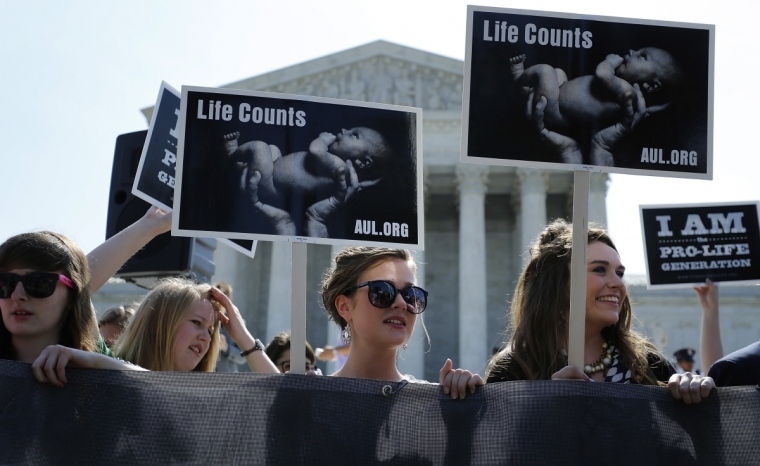Government, through HHS, will pay for abortion drugs when employer objects on religious grounds

WASHINGTON (Christian Examiner) – The U.S. Department of Health & Human Services has created a new set of rules that allows women who work for "closely held" for-profit corporations to obtain abortion-inducing contraceptives – even if their employer refuses to pay for them because of a religious objection.
Under the news rules, when a company objects on religious grounds to providing coverage for abortifacients – or drugs that cause an implanted, fertilized egg to detach from the uterus –and notifies HHS of its decision, employees from the company can still receive "separate payments for contraceptive services, with no additional cost to the enrollee or organization, and no involvement by the organization."
... we recognize the deeply held views on these issues, and we are committed to securing women's access to important preventive services at no additional cost under the Affordable Care Act, while respecting religious beliefs.
The cost for the abortifacients, according to HHS, will be absorbed by a third party insurer who can then seek reimbursement from the federal government.
HHS Secretary Sylvia Burwell said in a statement, posted late in the afternoon July 10, the department was looking for a new way to provide access to "preventative services, including contraception."
"At the same time, we recognize the deeply held views on these issues, and we are committed to securing women's access to important preventive services at no additional cost under the Affordable Care Act, while respecting religious beliefs," Burwell said.
After the passage of the Affordable Care Act (also known as "Obamacare") in 2010, the government required for profit companies to provide insurance coverage for up to 20 forms of birth control – among them, the "morning after pill."
Hobby Lobby, Mardel Christian Stores, and Conestoga Wood Products all objected to the providing coverage for the forms of birth control causing an abortion because the practice of abortion conflicted with the organizations' religious values. Burwell pressed the case all the way to the Supreme Court in an effort to impose the contraceptive mandate universally and lost in 2014.
The American Civil Liberties Union praised the new rules allowing women obtain the abortifacients at no cost "in the troubling aftermath of the Hobby Lobby ruling."
"Invocations of religion shouldn't be used as a smokescreen to allow employers to treat their female employees like second-class citizens. That's why an accommodation was never necessary in the first place," said Brigitte Amiri, senior staff attorney for the ACLU's Reproductive Freedom Project.
Still, the ACLU lamented that the rule makes an accommodation available to "an overly broad group of companies, going beyond what was required by the Supreme Court's decision in Hobby Lobby. As a result, strong oversight and enforcement is needed to ensure that the many women who are employed by companies that use the accommodation have access to seamless coverage."
According to the new HHS rules, a closely held for-profit entity is defined as a corporation not traded publicly and one in which more than 50 percent of the corporation's ownership is held by fewer than five people. When the corporation is held by a family, HHS sees it as being held by a single owner.
"Although we are disappointed that today's rule opens up the accommodation to even more for-profit organizations, we applaud the federal government for ensuring women receive contraception coverage, regardless of where they work," Amiri said in the ACLU statement.
"We will continue to advocate for federal legislation that would restore the ACA's contraceptive coverage guarantee that was weakened by the Supreme Court's decision in Hobby Lobby."